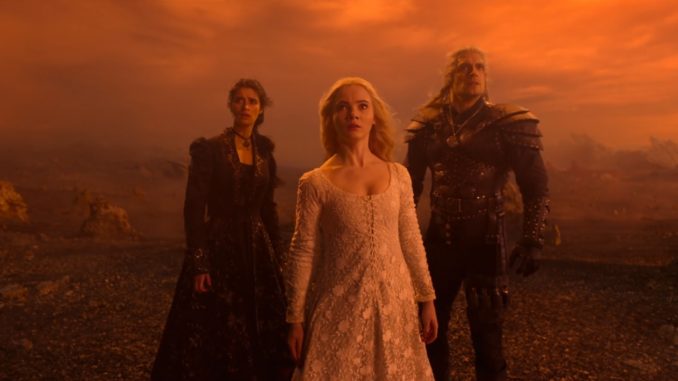
Race-swapping and gender-swapping of established characters in literature and other forms of entertainment has been a hotly debated topic. Or it would be if one side actually tried to engage with the other. But we live in an era now where civil discourse is actively shut down and, if you go against a particular narrative, you are silenced. So it’s refreshing to see the conversation occur when it happens. In this case, a discussion about The Witcher Netflix Series occurred between YouTuber Jeremy “The Quartering” Hambly and The Witcher showrunner and executive producer Lauren S. Hissrich where they talked about the show’s race-swapping of certain characters. Hissrich’s explanation for her reasons to include a more diverse cast in The Witcher was interesting to hear. However, the reasons she provided are wrong and endemic of what has been plaguing entertainment for a long time now.
But before I go any further, there are a couple things that need to be said. We live in an era where a certain group of people are so intolerant and stubborn in their ways that they will try to demonize any sort of criticism no matter how respectful it is. So I want to make it very clear, I am not attacking Hissrich herself. I am challenging her beliefs, ideals, and the defense of her work because it does encapsulate the current thinking of the entertainment industry despite her claims to the contrary. An industry overrun by writers and other creatives who think like she does. Who are propped up by a vocal minority that tries to shut down any kind of conversation.
So before you continue reading on, I want you to watch and listen to what Hissrich said and I will also provide a transcript of her video for those who prefer to read instead of watch. The purpose of this is for you to form your own opinions before I voice mine.
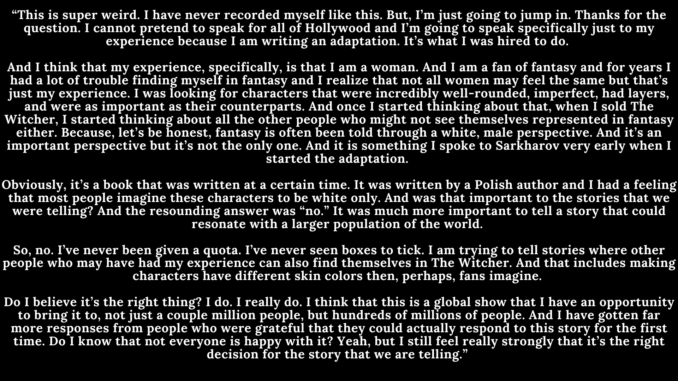
The current meta taken from the Democrat/Leftist, Social Media, and Hollywood handbook is for those behind the current wave of adaptations to accuse established fandoms of being toxic, racist, misogynistic, fat phobic, transphobic, homophobic, etc ad nauseum. The demonization and vilification of these fandoms is a strategy where the purpose is to silence any criticism of a subversive adaptation for well-beloved IPs in order to push an agenda and hopefully rake in the “woke cash” from a more broader and general audience.
So I have to give kudos to Hissrich, for explaining why The Witcher Netflix show race swaps characters such as Yennefer of Vengerberg and Fringilla Vigo, because not a lot of creatives on the other side of the aisle are willing to even try and have a civil discourse about a topic regarding the current path that the TV and film industry has been on for the last decade. A path that has, especially these past ten years, been traveled upon at lightspeed.
However, even though that is what is being discussed, Hissrich immediately tries to separate herself from Hollywood at the start of her response,
“I cannot pretend to speak for all of Hollywood and I’m going to speak specifically just to my experience because I am writing an adaptation. It’s what I was hired to do.”
It’s interesting that, from the start, Hissrich states that she “cannot pretend to speak for all of Hollywood” even though what she has done is exactly what the majority of Hollywood has been doing for years now. Her actions show that she is in lockstep with Hollywood’s agenda to “wokify” everything that has ever been successful when it comes to literature, tv shows, and film. So it is puzzling to see this approach taken from the start, but this tactic appears a couple more times throughout her video until one realizes that she is trying her hardest to not upset anyone.
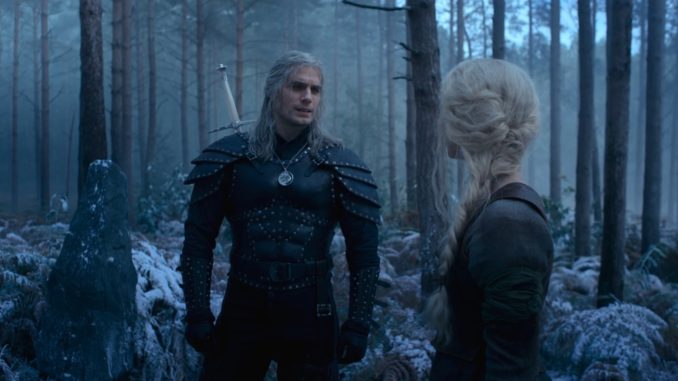
Once Hissrich is done emphasizing that she cannot speak for Hollywood, she immediately talks about her experience when it came to adapting The Witcher. Mainly, that she is a woman. Which doesn’t make sense to bring up because all she has to do is adapt a book into a format for TV. Being a man or woman to do that isn’t important, just the ability to faithfully and competently get the job done with respect to the source material. Like what director Peter Jackson tried to do with The Lord of the Rings movies.
Yet, Hissrich brings up her gender to use as a launching point to explain why she did what she did for The Witcher by stating,
“And I think that my experience, specifically, is that I am a woman. And I am a fan of fantasy and for years I had a lot of trouble finding myself in fantasy and I realize that not all women may feel the same but that’s just my experience. I was looking for characters that were incredibly well-rounded, imperfect, had layers, and were as important as their counterparts. And once I started thinking about that, when I sold The Witcher, I started thinking about all the other people who might not see themselves represented in fantasy either. Because, let’s be honest, fantasy is often been told through a white, male perspective. And it’s an important perspective but it’s not the only one. And it is something I spoke to Sarkharov very early when I started the adaptation.”
Once again, Hissrich makes a statement and then tries to give herself a loophole by saying that “not all women may feel the same” when she talks about how she is a fan of fantasy but struggled to find herself within the fantasy genre. A highly disingenuous claim since any well-read individual, male and female, can point out a plethora of examples for great female characters written by male and female authors. Not just in literature but in TV and film as well.
Yet perhaps she is looking for a certain type of female archetype that was missing over the past 50 years that could specifically appeal to her? Well, Hissrich did provide some parameters to explain why she had a hard time finding herself in fantasy. According to her, characters needed to be “incredibly well-rounded, imperfect, had layers, and were as important as their counterparts.”
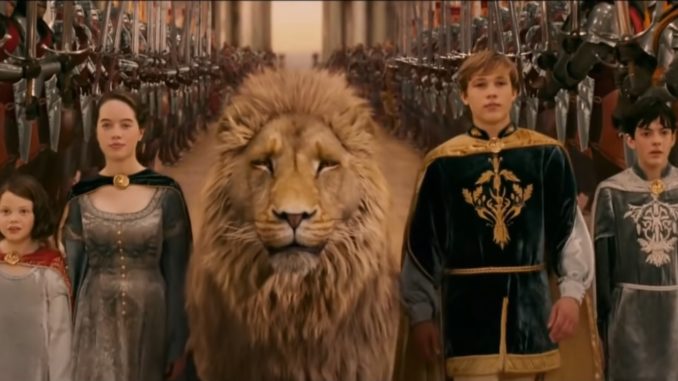
Now, I don’t know where Hissrich has been looking, but authors such as Melanie Rawn, JK Rowling, Anne McCaffrey, Brandon Sanderson, J.R.R Tolkien, C.S. Lewis, Robin Hobb, Morgan Llywelyn, and so many more have offered a range of women that are, as Hissrich puts it, “well-rounded, imperfect, had layers, and were as important as their counterparts.” I’m not even going to get into sci-fi where, on TV alone, you can point to Star Trek, Babylon 5, the Stargate franchise, Farscape, Firefly, Star Wars, Battlestar Galactica, Andromeda, and many more. If that isn’t enough, just visit the various pages dedicated to fantasy on Reddit and you will find an excess of recommendations for such female archetypes.
So you would think that the authors mentioned alone would be enough to rebut her argument that there aren’t such women in fantasy. Yet, as stated earlier, she gave herself a way out of that argument by saying that “her experience” wasn’t the same as other women. Because she is framing things in a way to justify her adaptation of The Witcher. Specifically, race-swapping characters for the sake of diversity. Why do I say this? Because she immediately follows up with how, after thinking about her experience, she “started thinking about all the other people who might not see themselves represented in fantasy either.” A ham-fisted attempt to drum up emotional support for her argument which, so far, hasn’t been properly supported or justified.
Once she establishes her reasoning as to why her adaptation is in response to her experience and the experience of all other minorities, Hissrich then goes on to point out that “fantasy is often told through a white, male perspective.” The immediate implication that this is wrong is obvious though, as is the pattern now, she tries to distance herself from such implications by going on to say that “it’s an important perspective but it’s not the only one.”
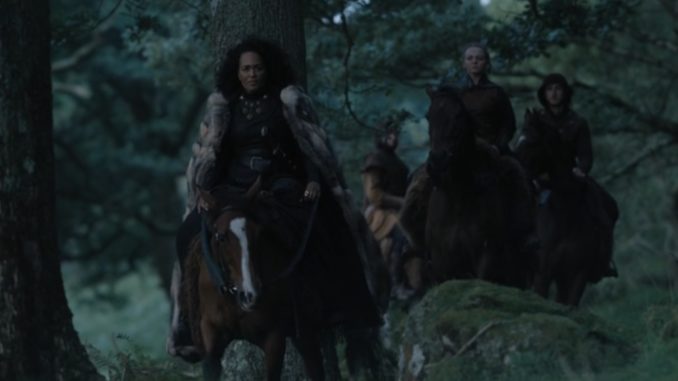
Stories being told through a white and, more specifically, white male perspective is an argument Hollywood has been pushing as a way to do whatever it wants in order to justify taking successful intellectual properties(IPs) and “wokifying” them in an attempt to try and guarantee that they can make money and appear to be “progressive.” Yet, while Hissrich claimed at the start that she doesn’t speak for Hollywood, she is still saying the same things that the industry says. Though, to be fair, she did admit that this perspective is important too. Something Hollywood would never say.
But I’ll just simply point out that WESTERN fantasy is dominated by white authors because WESTERN civilization has been predominantly white. The argument that literature is dominated by white people is an absurd one. It would be akin to me living in Asia all my life and then pointing out that Eastern fantasy is written by Asian people. Or me living in Africa where their own stories and legends are created and told by black people and then complaining about it. This argument has been, and still is, superficially irrelevant. More specifically when it comes to older work.
To Hissrich’s credit, she does acknowledge that The Witcher was “a book written at a certain time…written by a Polish author and I had a feeling that most people imagine these characters to be white only.” While she does point this out, she goes on to say that these facts were not important to the stories that were being told. That, and here is where her entire explanation falls apart like it does for the rest of Hollywood,
“It was much more important to tell a story that could resonate with a larger population of the world.”

But hold up, Hissrich! A great story, just like a great song, will always resonate with people no matter where it comes from. Irregardless if it is about all white characters, Asian characters, black characters, etc. The story is what resonates with people. Stories, ideas, music, philosophy, and more all cross boundaries if they are great enough.
There is a reason why The Lord of the Rings trilogy is one of the most popular works of literature, why Japanese manga is dominating the comic book industry, and why Harry Potter resonated with children all over the world. Because of their stories. Not the color of the author or their character’s skin or gender.
Their stories.
I don’t like it when Hollywood whitewashes characters and the same goes for POC-washing of characters such as with The Witcher race-swapping Yennefer and Fringilla who, in the books, are described as looking similar to each other which isn’t the case in the show. So if I don’t like it happening for other cultural works, than I wouldn’t want someone to turn ‘Romance of the Three Kingdoms’ into a movie, only to diversify half the characters because the setting calls for just Asian actors. Battle Royale featured Japanese students and I wouldn’t have it any other way. Black Panther is set in Wakanda, a fictional African nation, and I wouldn’t want the cast diversified. If I’m reading a book from Asia, I imagine them as being all Asian unless the author specifies that they are not. As would be the case for Mexican literature, African literature, Indian Literature, and Martian literature. So the same goes for classic, Western literature. It is expected that the stories be dominated by Caucasians unless otherwise specified.
But that goes for classic Western literature.
Modern literature doesn’t have the same excuse of it being a homogenous society. At least, not here in the United States. If Hollywood really cared so much about diversity and inclusivity, it would focus on modern literature rather than trying to graft a modern setting and ideals onto works of literature from other countries and time periods.
We can’t race-swap Huck Finn and Jim and expect it to resonate the same way with readers or have the same impact. But we can create a new story where the roles are reversed and the setting changed or modernized.
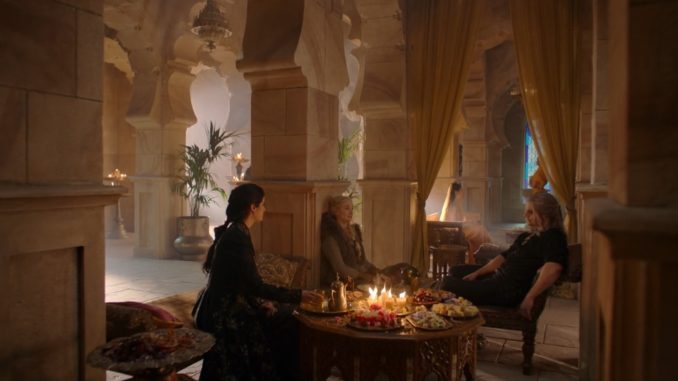
Now, I can believe Hissrich when she says that she is not checking any boxes. But that doesn’t mean she isn’t following the same program. Hissrich’s explanation and her actions prove that. The biggest problem with Hollywood is that they are all cut from the same cloth. That they are all morally right, or morally superior in this crusade to subvert and modernize past history, ideals, and quandaries. It is certainly chilling to hear Hissrich when she states,
“Do I believe it’s the right thing? I do. I really do. I think that this is a global show that I have an opportunity to bring it to, not just a couple million people, but hundreds of millions of people. And I have gotten far more responses from people who were grateful that they could actually respond to this story for the first time. Do I know that not everyone is happy with it? Yeah, but I still feel really strongly that it’s the right decision for the story that we are telling.”
Hissrich’s statement sounds like that of a crusader fighting against the heathens in the hope of spreading their message. That her beliefs and ideas supersedes the material, intention, and message of the author’s work which she is simply supposed to adapt for the screen. That she is a champion for the underrepresented. A white savior of the minorities by including them in works that were written at a time or in a place that features a homogenous society.
While I admit to being a bit too facetious with my prior statement, it does ring true because she immediately goes on to say that she has received grateful responses from minorities. Which, as far as I am concerned, is a small minority of the minority. The minority that sees themselves as victims in the United States specifically. A testament to the mental fragility of this minority because of liberal and leftist propaganda that exacerbates and propagates victimhood.
The truth is, that the majority do not care for these token gestures. They don’t care to see themselves in everything produced. Everyone wants to see great stories, be introduced to new worlds, cultures, ideas, stories, food, music, and everything else that makes us different. Diversity doesn’t need to be shoehorned into something that doesn’t have it in the first place because most rational people only care about the story.
I will go even further to say that POCs who praise race-swapping and gender-swapping are one of the problems when it comes to woke Hollywood and society in general. They don’t realize that, by Hollywood doing this rather than creating new IPs or adapting modern works, it is saying that POC characters are inferior unless grafted onto something that is superior.
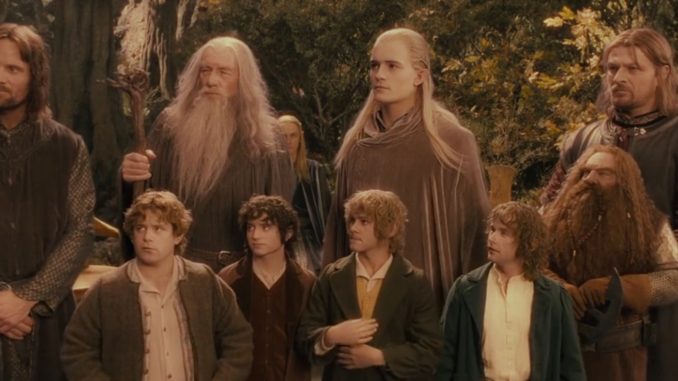
Today’s Hollywood creatives, authors, poets, etc have been educated and programmed to be woke and not talented. To focus on progressivism rather than progression. Diversity instead of story. We can’t look back at the past and ignore the realities of it. But we can recognize their great works and why they are so popular without the narcissistic need to change them. We can live in the now and realize that it is not like the past. That we can create new stories which encapsulates a more diverse society.
I say all of this because they, not just Hissrich but this vocal minority of “progressives” don’t speak for me. To say that you are changing established literature, tv, and film for people like me is narcissistic and condescending. As a person of color, it is a fact that I will rarely see myself represented in literature, TV, and film. The only way for me to change that is not to subvert someone else’s work, but to create my own. To write my stories and, hopefully, find an audience that resonates with it. But if my writing isn’t that good, then I hope that it will at least inspire someone to be a better writer than me to show our perspective. Because melting pot stories are inevitable. In America we are called the great melting pot for a reason and it is here where the new, great literature will be written that shows how far we have come as a species.
Not these supercilious and sanctimonious adaptations done in the name of “diversity.” There is a reason why Hollywood continues to fail and why it will continue to fail as the less-talented try to fill the shoes of past writers. Don’t believe me? There is plenty of proof. Wheel of Time, Resident Evil (Netflix series), The Witcher Season 2, Star(Jar) Wars, Star(Jar or Nu) Trek, Doctor Who(Karen), West Side Story (2021), Cinderella (2021), Terminator: Dark Fate, Charlie’s Angels (2019), Cowboy Bebop, Vikings: Valhalla, and so many more are just some of the examples of ever-failing properties written by subpar writers who pursued wokeness and diversity rather than great storytelling.
We see the latest example with Amazon’s The Lord of the Rings: The Rings of Power series which has nothing to do with Tolkien or the world he created except in a loose sense. But it has everything to do with the cast and crew’s ideology and what they want. Rather than work within the boundaries of what the author created, and base their show on that, they are basing this show on their personal worldviews. What is being presented to Tolkien fans is loosely based on LoTR because Amazon doesn’t own the rights to any of the books aside from the trilogy and the appendices at the end of the third book The Lord of the Rings: The Return of the King. But that is a topic for another day.
Suffice to say, this woke entertainment is failing so badly that Netflix has been hemorrhaging subscribers and Disney is taking huge hits because of its approach to entertainment that isn’t bolstered by talented writers, producers, or directors. Furthermore, The Witcher Season 2 wasn’t great, with the writing being all over the place and how glaringly obvious it was when it veered away from the source material (audience score is 60% on Rotten Tomatoes).
Showrunners like Hissirch need to remember that it is not their job to incorporate their worldviews into a property that they are adapting. It is their job to create a product that is faithful to the source material that is being used.
More importantly, Hollywood doesn’t speak for me. I don’t need you to sully and water down great stories that inspired me for your woke Hollywood agenda. Instead, start focusing on adapting more modern, authentically diversified works into movies. Don’t use me and other minorities as an excuse to push your agendas.
Update: The alleged firing of Henry Cavill from The Witcher is certainly not surprising given the actor’s respect for the lore as it is alleged that he was fired for having a “toxic, gamer bro” attitude. Other issues include Cavill allegedly overriding Lauren Hissrich and making changes to the show that has been criticized for deviating from the books. While we don’t know for sure the reason for why Henry Cavill was fired or let go from The Witcher, we do know that Henry Cavill’s departure is the reason why Liam Hemsworth will be taking over for Season 4 of The Witcher.
Author’s Note: Support this site by donating via Paypal or even checking out our merchandise on RedBubble where you can find designs that cater to writers and readers. Money donated and raised goes into paying for this website and equipment.
Check out our Non-BUYnary txt design!



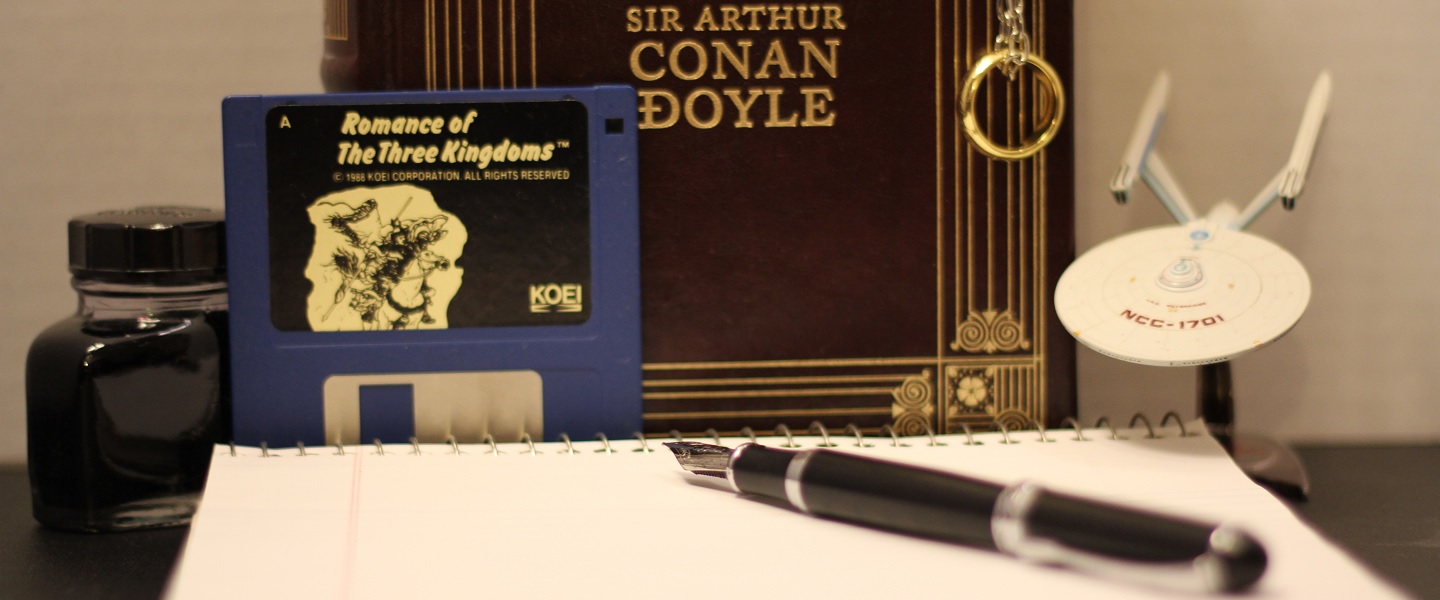


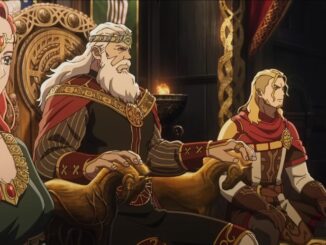
[…] challenge their opinions. Hollywood has also adapted this mentality when you look at shows such as The Witcher and the reasons the showrunner gave for their adaptation of the […]
[…] gamers. We see a similar thing with movies such as The Woman King, shows like Vikings: Valhalla and The Witcher, to the classical works of Roald Dahl and Agatha Christie; the purposeful editing for the sake of […]
[…] their beliefs or ideas. It’s why we see so many movies and tv show adaptations failing such as The Witcher, The Woman King, Amazon’s The Lord of the Rings: The Rings of Power, and so many other IPs […]
[…] Peter Jackson’s The Lord of the Rings is a trove of poor adaptations such as The Wheel of Time, The Witcher Season 2, Cinderella (2021), The Dark Tower, A Series of Unfortunate Events, The Golden Compass, The Time […]
[…] stated in other editorials about shows like The Witcher, or even criticizing The Rings of Power, I hate colorwashing of established characters (look at […]
[…] tactic that these Faulkiens, and other fake fans of properties such as Star Trek, Star Wars, and The Witcher, fall back to. They will argue that they may not know much about the original property but they […]
[…] The Witcher certainly took fans to task as it race-swapped characters and tried to justify it. Meanwhile, the writing continued to get worse so that, as a result, the prequel series The […]
[…] latest trend when it comes to the entertainment industry; following the examples of shows such as The Witcher and Vikings. But it also comes on the heels of Amazon’s The Lord of the Rings: The Rings of Power […]
[…] what makes the works of Tolkien so popular. That these industries have been talking about their agenda and crusade openly for a long time and incorporating them into anything and everything. An agenda that has resulted in these […]
[…] Video games were no longer about telling A story, but telling THE story that fell in line with a checklist that every sector of entertainment has adhered to. 2024 seemed to be the fevered culmination of the woke agenda’s final form as we saw female […]
[…] season 5…” which is just another attempt to drum up support for the idea. So like The Witcher showrunner and writers, The Rings of Power showrunners are doing the same thing. Problem is, The Rings of […]
[…] lazy writing for those faux social credits and a now-ineffective shield from criticism. It’s also the oldest play in the woke agenda handbook. Everyone is sick of it and are no longer afraid to say it out […]
[…] does The Witcher, Halo, Max Payne, Bloodrayne, Resident Evil, House of the Dead, Assassin’s Creed, Street Fighter, […]